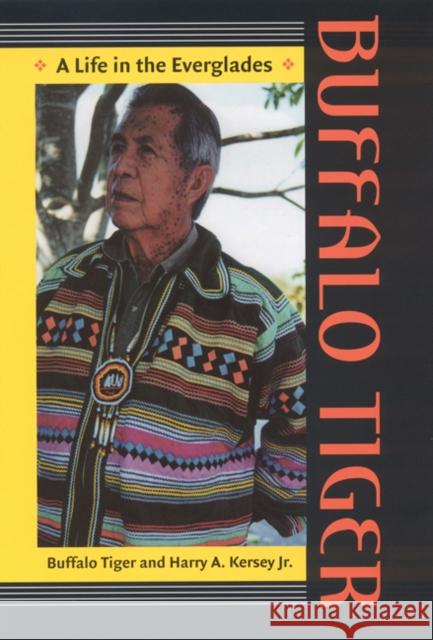Buffalo Tiger: A Life in the Everglades a Life in the Everglades » książka
Buffalo Tiger: A Life in the Everglades a Life in the Everglades
ISBN-13: 9780803213173 / Angielski / Twarda / 2002 / 184 str.
In 1959 a group of Miccosukee Indians, frustrated in their attempts to gain official recognition by the United States, met with Fidel Castro and were recognized by the Cuban government. The man behind this unprecedented move to provoke the United States government into action was Buffalo Tiger, a Miccosukee elder who has become one of the most prominent Indian leaders in the southeastern United States in the modern era. This book is the story of Buffalo Tiger's life, told in his own words. Born in a small village in the Everglades in 1920, Buffalo Tiger grew up immersed in the traditional customs and language of the Miccosukees. Making their home for generations in the remote reaches of the Everglades, the Miccosukees were able to retain much of their older way of life well into the twentieth century. As the modern world encroached on the Miccosukees and the Everglades shrank around them, Buffalo Tiger became an energetic and outspoken leader of the community. He and other Miccosukees fought for years to escape the shadow of the larger, better known, and more politically powerful Seminoles. As the first tribal chairman of the Miccosukees, Buffalo Tiger oversaw the adoption of a tribal constitution and worked diligently for reforms and to protect the community's cultural and natural resources. In the 1970s the Miccosukees became the first modern tribe to take complete control of their affairs and federal budget. Buffalo Tiger's penetrating observations about his people and the world around them, combined with the skilled scholarship of historian Harry A. Kersey Jr., strikingly illuminate a memorable life, a tireless leader, and an Indian community still proud to call the "River of Grass" its home. Harry A. Kersey Jr. is a professor of history at Florida Atlantic University. He is the author of several books, including An Assumption of Sovereignty: Social and Political Transformation among the Florida Seminoles, 1953-1979 (Nebraska 1996) and The Florida Seminoles and the New Deal, 1933-1942.











